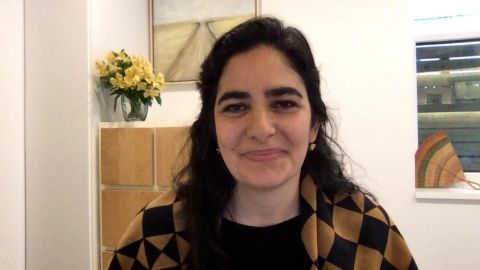Read Transcript EXPAND
ANA PORZECANSKI, DIRECTOR, CENTER FOR BIODIVERSITY AND CONSERVATION, AMERICAN MUSEUM OF NATURAL HISTORY: I think the importance of these natural environments cannot be over stated and the Amazon, in particular, the largest by far tropical rain forest on our planet is extremely important. It plays major role in water cycles. In fact, it creates the water, maintains the water that makes life possible in many of the cities in South America and the agricultural regions there. And it plays a major role in stabilizing the global climate. It also is home to 30 million people and at least probably 2 million of indigenous peoples and traditional peoples that live in the forest and sustain these forests and protect these forests in most cases. And I think it’s important to also understand that the — these environments provide massive amounts of food, of raw materials and of compounds that are beneficial to us that we use in medicine, life sciences and many more. And it is all really facing unprecedented threat. I would like to emphasize that this report beautifully illustrates the importance of these — of biodiversity of these natural ecosystems to our wellbeing, to our health. Like the (INAUDIBLE) that were pictured there, about 4 billion people on the planet depend on natural products for their health care. I’m happy to say more as well.
CHRISTIANE AMANPOUR: Let’s just talk about — you know, let me — I just want to about that, drill down on the health care because I think, you know, we — they called the forest, I think, what, the world’s natural pharmacy.
PORZECANSKI: Yes.
AMANPOUR: What specifically would people, you know, react to or rather, you know, recognize in terms of medicines and cures? And particularly, we’re living in a pandemic.
PORZECANSKI: Absolutely.
AMANPOUR: So, give us some specifics that is so vital.
PORZECANSKI: Yes, absolutely. Our pharmacy really — our pharmacy’s toolkit is based in nature. People may not realize this but about 50 percent of the most common prescriptions are based on natural compounds or inspired by natural compounds. About 70 percent of cancer treatments, drugs for cancer treatment, are either derived from compounds in nature or inspired by them. And many of our familiar medicines like aspirin, like analgesics, anesthetics, steroids, painkillers and many more, antibiotics like amoxicillin, penicillin, all of them are derived from natural organisms, from fungi to microorganisms, plants and animals. And if you had a COVID-19 PCR test lately, then you have a bacterium to think for the enzyme that made the DNA copying and the test possible. So, these really can’t be overestimated how much we depend on nature for our health and wellbeing.
About This Episode EXPAND
Aaron David Miller; Marwan Muasher; Ana Porzecanski; Niall Ferguson
LEARN MORE


